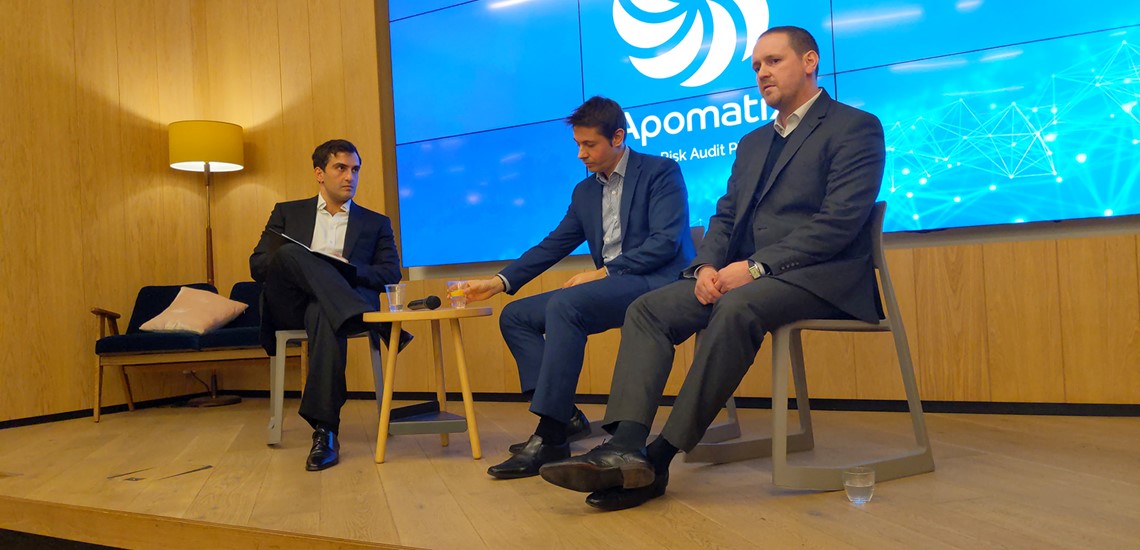Industry leaders in IT, compliance, risk audit and management came together at Barclays’ Rise Accelerator - home of FinTech in London - on 27th February 2020 to discuss the “Challenges and Innovation in Risk Audits”.
The panel moderator Vartan Sarkissian, CEO and Founder of Apomatix was joined by industry experts James Bradley, the Global Head of Security Standards Compliance at Experian and John Williams, Global Head of IT at Equiti Group and Data Protection Officer for Equiti Capital, part of the Equiti Group
The discussion was highly relevant as businesses are increasingly facing integrated and evolving risks. Some examples of risk frameworks covered during the discussion were within the fields of Information Security and Data Protection Compliance (such as GDPR, CCPA and others). If not appropriately identified, assessed, and managed, risks can result in number of unfavourable outcomes including loss of business, procurement issues, loss of sales, regulatory fines and more.
Topics discussed included how to establish risk management cultures, processes and governance procedures, along with other innovative methods to identify risks and manage them accordingly.
The discussion was opened to other industry leaders in the audience who collaborated with the panellists and shared their experiences responding to challenges introduced by different cultures, leadership methods, as well as geographic and time zone related issues. Everything from AI to document version control was covered, but a common thread throughout was the need to win and keep the support of colleagues and stakeholders.
It is clear that these are challenges faced by all types of organisations working in a variety of different fields including: IT, compliance, cybersecurity, sustainability and health and safety. Irrespective of the nature of business, organisations need to focus on increasing stakeholder engagement, reducing complexity and decreasing the repetitiveness of audits through the use of appropriate technologies that help to streamline, automate and provide real-time capabilities.
Source: apomatix.com




